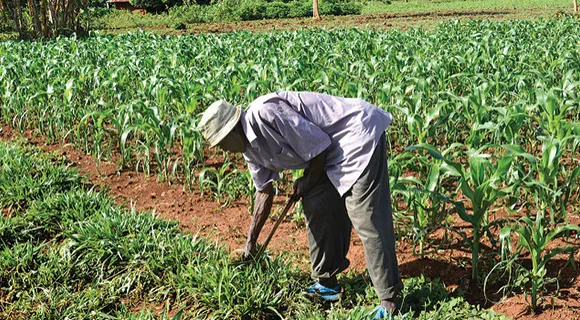


In the global marketplace, the demand for high-quality, sustainably produced grains is on the rise. Consumers and businesses alike are becoming increasingly conscious of the environmental impact of their food sources. For exporters, adopting sustainable farming
practices is not just an ethical choice but a strategic one, ensuring compliance with international standards and appealing to a broader market. Here, we delve into the sustainable farming practices that can enhance the quality of grains and bolster export potential.
Sustainable farming practices aim to meet current food needs without compromising the ability of future generations to meet theirs. For grain exporters, this involves:
● Environmental Stewardship: Reducing the environmental footprint through Eco-friendly farming techniques.
● Economic Viability: Ensuring farming practices are economically sustainable for long-term productivity.
● Social Responsibility: Supporting the well-being of farming communities and workers.
Crop rotation involves growing different types of crops in the same area across different seasons. This practice helps maintain soil fertility, reduce pest and disease cycles, and improve crop yield.
● Benefits for Grain Quality: Improved soil health leads to higher nutrient availability, which enhances grain quality.
● Environmental Impact: Reduces the need for chemical fertilizers and pesticides, lowering environmental pollution.
IPM combines biological, cultural, physical, and chemical tools to manage pests in an eco-friendly manner.
● Benefits for Grain Quality: Minimizes crop damage and maintains high grain quality.
● Environmental Impact: Reduces reliance on synthetic pesticides, protecting beneficial insects and biodiversity.
Conservation tillage involves minimal soil disturbance, which helps preserve soil structure, organic matter, and moisture.
● Benefits for Grain Quality: Better soil health translates to more robust and higher-quality grain crops.
● Environmental Impact: Reduces soil erosion and runoff, promoting water conservation and reducing carbon emissions.
Using organic fertilizers, such as compost and green manure, improves soil fertility and structure without the adverse effects of chemical fertilizers.
● Benefits for Grain Quality: Enhances nutrient content and overall grain health.
● Environmental Impact: Reduces chemical runoff into waterways and enhances soil biodiversity.
Efficient water management practices, including drip irrigation and rainwater harvesting, ensure optimal water use.
● Benefits for Grain Quality: Consistent water supply leads to uniform grain development and higher yields.
● Environmental Impact: Reduces water waste and preserves local water resources. Certification and Compliance Adhering to organic and sustainable farming certifications can enhance the marketability of grains.
● Organic Certification: Certifies that grains are produced following organic farming standards, appealing to health-conscious consumers.
● Sustainable Farming Certification: Recognizes adherence to sustainable farming practices, ensuring compliance with international export standards. Market Advantages of Sustainable Farming Adopting sustainable farming practices offers several market advantages:
● Premium Pricing: Sustainably produced grains often command higher prices in international markets.
● Consumer Trust: Transparency in farming practices builds consumer trust and brand loyalty.
● Market Access: Many countries and regions have stringent import regulations favoring sustainably produced grains.
Sustainable farming practices are essential for producing high-quality grains that meet the demands of the global market. By implementing crop rotation, integrated pest management, conservation tillage, organic fertilization, and efficient water management, grain exporters can enhance product quality and ensure environmental sustainability. Certification and compliance with international standards further bolster market potential, positioning exporters for long-term success.
At Sumankot Worldwide Pvt. Ltd., we are committed to sustainable farming practices that not only yield premium quality grains but also safeguard our planet for future generations. By choosing our products, you are supporting a sustainable future and contributing to a healthier, more sustainable global food system.